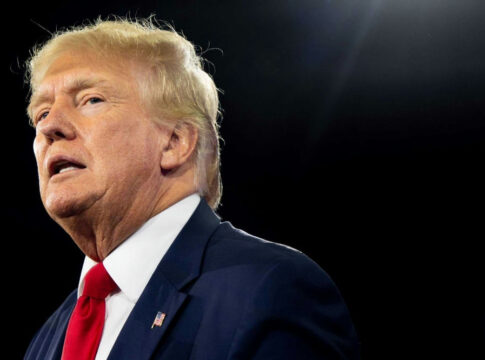President Trump’s “One Big Beautiful Bill Act” is shaking up Medicaid and shining a spotlight on the debate over work requirements and tax cuts.
Trump’s Bold Move: Transforming Healthcare
President Trump made headlines with the signing of the One Big Beautiful Bill Act (OBBBA) into law on Independence Day, 2025. The legislation aims to fulfill a slew of campaign promises, including significant tax cuts and major reforms to federal health programs, particularly Medicaid. The bill has sparked intense debate, with supporters applauding the fiscal responsibility and critics warning of increased hardships for vulnerable populations.
Medicaid, a joint federal-state program, provides health coverage to low-income Americans. Over the years, the program has expanded under the Affordable Care Act, but not without controversy. The OBBBA introduces stricter eligibility requirements and mandates work for able-bodied adults without dependents, aiming to offset the cost of tax cuts. These changes are stirring discussions about entitlement program sustainability, fraud prevention, and work incentives.
Key Stakeholders and Power Dynamics
The OBBBA has brought various stakeholders into the spotlight. President Trump, backed by Congressional Republicans, champions the bill for its fiscal prudence and work incentives. On the other hand, state governments and the Centers for Medicare & Medicaid Services (CMS) are tasked with implementing the complex new rules. This includes verifying work requirements and eligibility, a task that is far from simple.
Advocacy groups, both progressive and conservative, are vocal about the reforms. Progressive groups argue that these changes will harm vulnerable populations, while conservative think tanks see them as a step towards self-sufficiency and reduced dependency. The federal government controls broad Medicaid rules, while states administer the program, creating a dynamic interplay of power and responsibility.
Current Developments and Challenges
Since the signing of the OBBBA into law, CMS has allocated millions in new funding to implement the Medicaid provisions for fiscal year 2026. However, the Congressional Budget Office (CBO) estimates suggest that nearly one million more people could lose coverage under the new law compared to the House version. The White House maintains that the bill delivers significant tax relief while strengthening Medicaid by eliminating waste and fraud.
States are gearing up to implement new systems for verifying eligibility and work compliance, with guidance from CMS expected later in the summer of 2025. Meanwhile, advocacy groups are preparing legal challenges, arguing that the new requirements could lead to coverage losses among vulnerable populations. The timeline of events shows a rapid progression from the House passing the bill to President Trump signing it into law, underscoring the urgency and contentious nature of the reforms.
Impacts and Expert Perspectives
The short-term implications of the OBBBA are stark: millions could lose Medicaid coverage, primarily among able-bodied adults not meeting new requirements. States will face significant administrative burdens and costs in verifying work and eligibility, while safety-net providers like Federally Qualified Health Centers (FQHCs) may see an increase in uncompensated care due to more uninsured patients.
In the long term, the legislation could lead to reduced Medicaid enrollment, potential cost savings, and a precedent for future reforms. However, these changes may also exacerbate health disparities and financial insecurity for low-income Americans. Experts from the Kaiser Family Foundation (KFF) and other health policy analysts warn that similar past requirements have led to coverage losses without increasing employment, raising concerns about the effectiveness and fairness of the new mandates.
Sources:
Feldesman Tucker Leifer Fidell LLP
White House official statements
White House official statements
Kaiser Family Foundation (KFF)

